The fragrance mixers of the Medicis
It is a sunny morning in 1958. A boy, holding the hand of his great grandmother, enters the Officinia Santa Maria Novella on Via della Scala in Florence. The large golden angels guarding the door to the cloister and the magnificent coat of arms of the Medici on the wall were of little interest to the boy. While his great grandmother buys soap and maybe the odd flask of liqueur the boy roams the rooms. “I was bored and took the furniture apart”, says Eugenio Alphandery and laughs.
The boy from back in the day is now 70 years old and the Officina is his company. The legendary history of the firm seemed at an end when he turned it into a company that is renowned worldwide for its high-quality natural cosmetics, fragrances, herbal essences, and liqueurs.
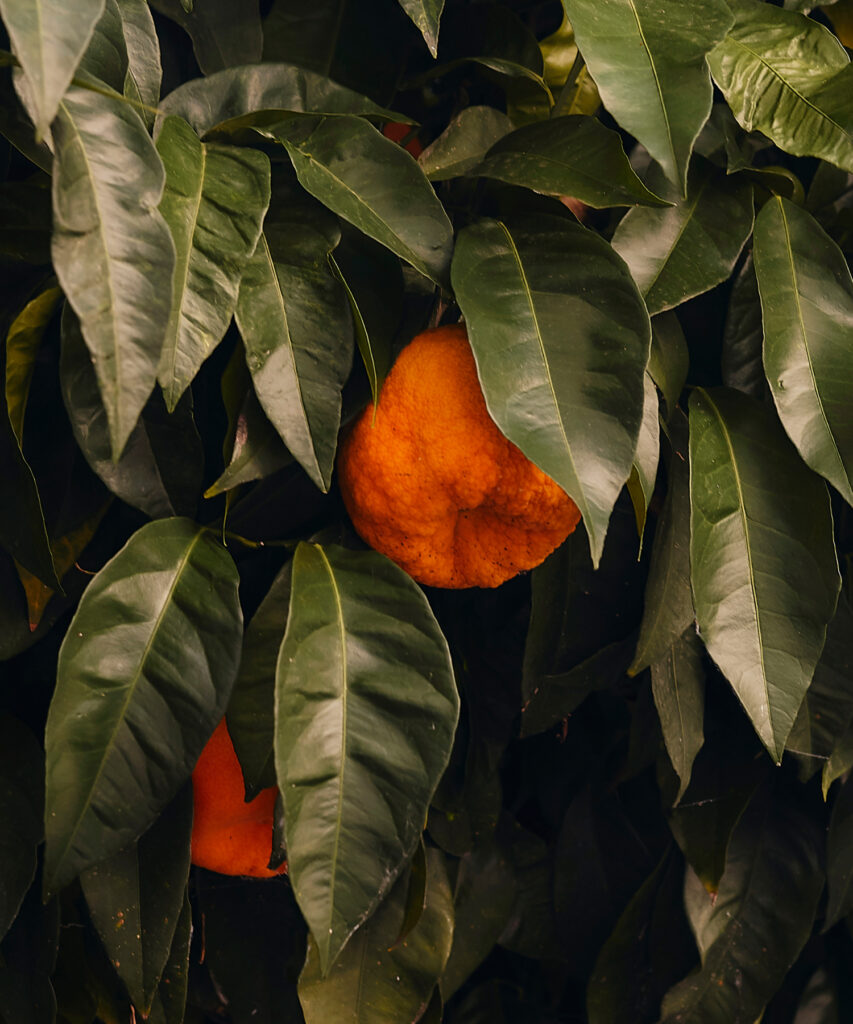
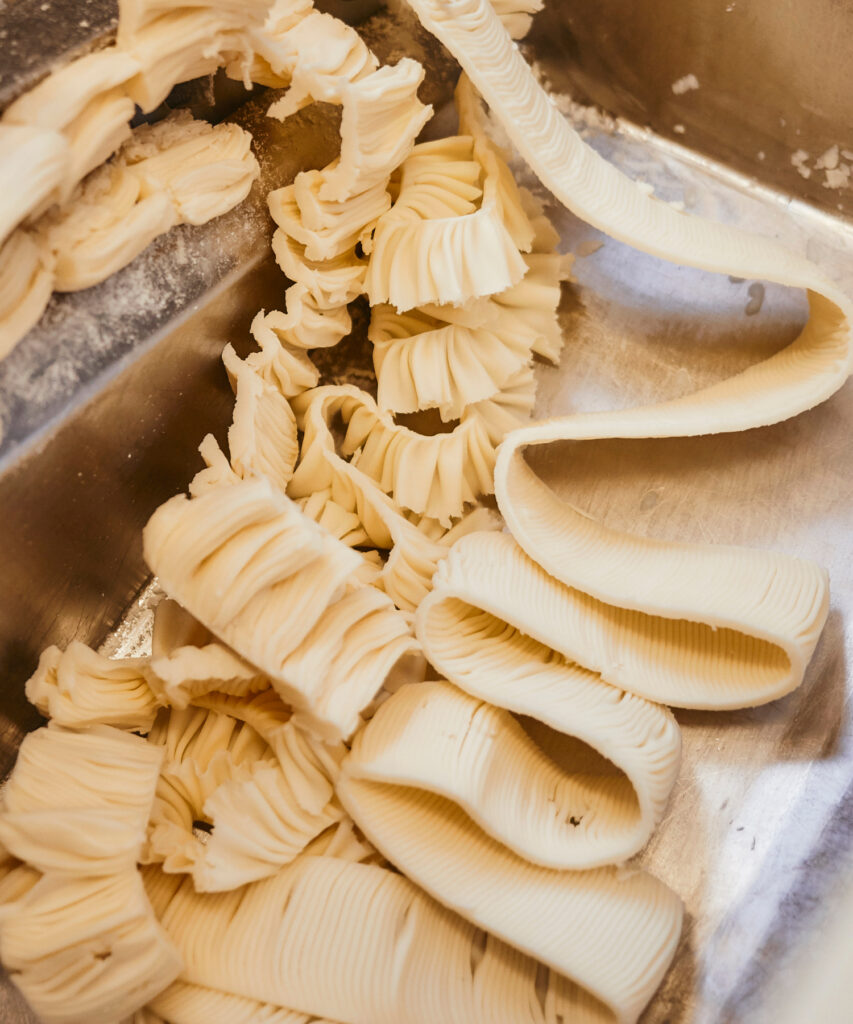
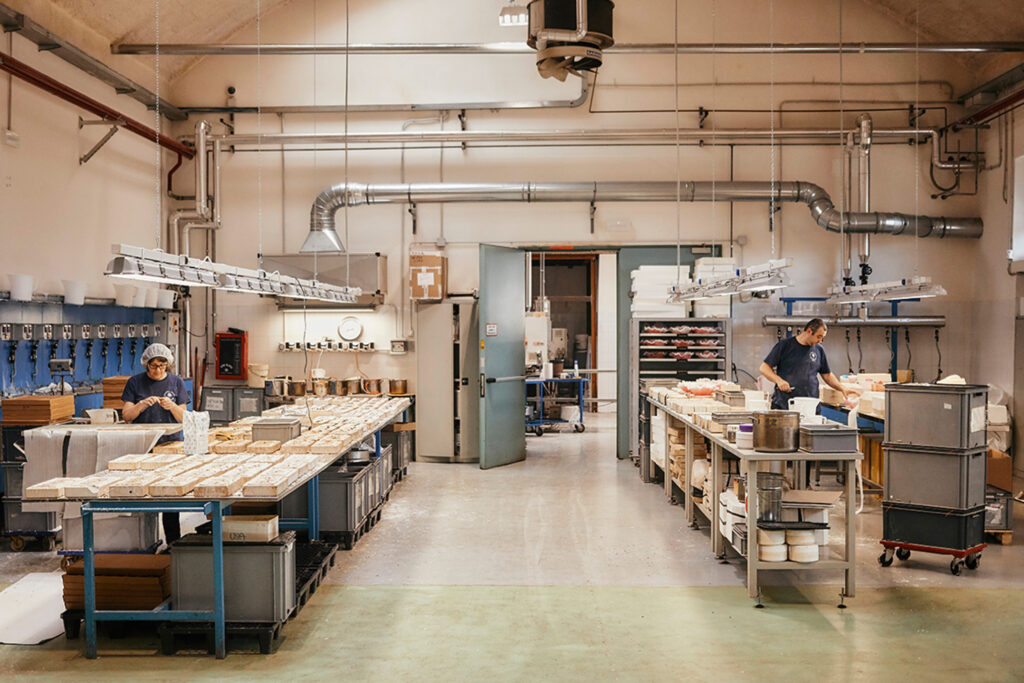
Alphandery sits in the small garden of the Officina and drinks espresso. When the popes came to Florence in the Middle Ages they took up residence in the monastery Santa Maria Novella; Leonardo da Vinci had his atelier here. Nowadays the historic sales hall fills slowly with visitors. They reverently contemplate the frescos on the dome-like ceiling, the medieval distillation flasks in the pharmacists’ cupboards and get closer to the counter where young women provide further information on the more than 700 products of the company in many languages.
Despite the fact the Officina Santa Maria Novella does not resort to marketing the fan base is huge. Alphandery knows that its customers are people who value quality highly. “More and more people want to know exactly what their cosmetics are made of”, he says. “They like to learn about the stories.” This is quite simple when it comes to the products of the Officina Santa Maria Novella: simply the best.
“Big cosmetics companies put more than half of their expenditures in marketing. What others invest in marketing and advertising, we invest in our products”, says Alphandery. Each and every ingredient is grown in the company’s own garden right outside the city. Vetiver and sandalwood are two of the few exceptions, because they just do not grow in a Florentine garden. Until a few years ago, all ingredients came directly from the monastery’s garden, today they are grown only a few kilometres away in a suburb.
Elixiers against the plague
A lot of recipes are centuries old, as old as the Officina Santa Maria Novella itself. They originate in the 13th century when Dominican monks established a hospital with pharmacy for the poor in the monastery SMN. They grew herbs and produced medicines, balms and ointment themselves. During their quest for an effective cure against the plague, which wiped out two thirds of the Florentine population in 1384, they created rose water that was supposed to have antiseptic properties. The latter proved not the case, but the fragrant tonic is one of the Officina’s most popular products up until today. The excellent reputation of the pharmacy flourished, most of all due to a prominent client: In 1533 Catherine de’ Medici ordered the monks to produce a perfume; Acqua della Regina was the first alcohol based fragrance worldwide. Nowadays the bergamot scent is called Acqua di Santa Maria Novella.
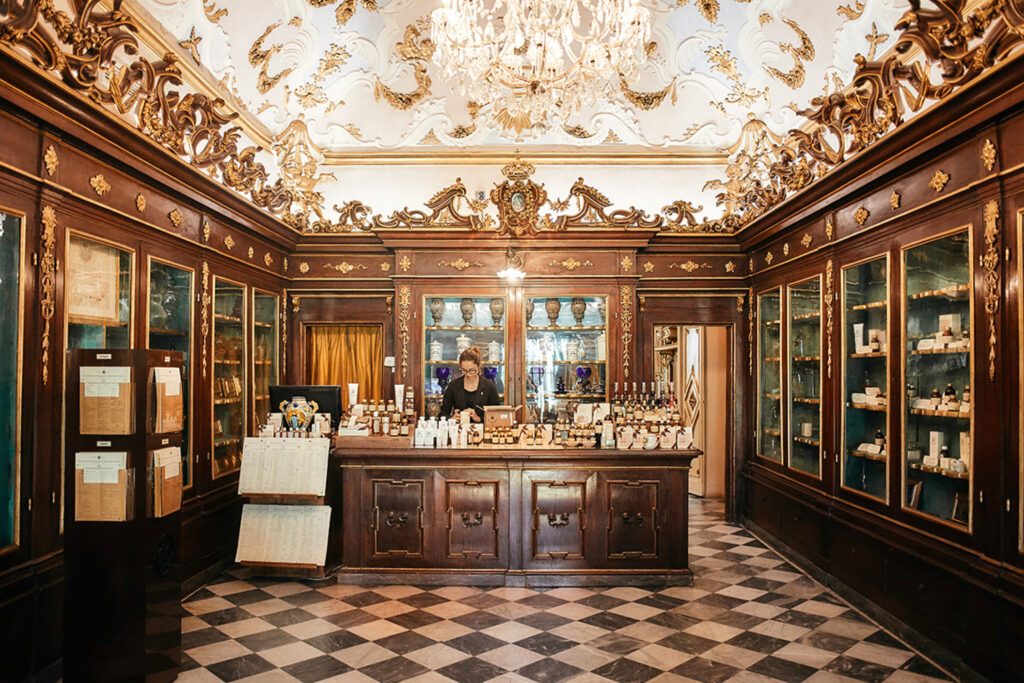
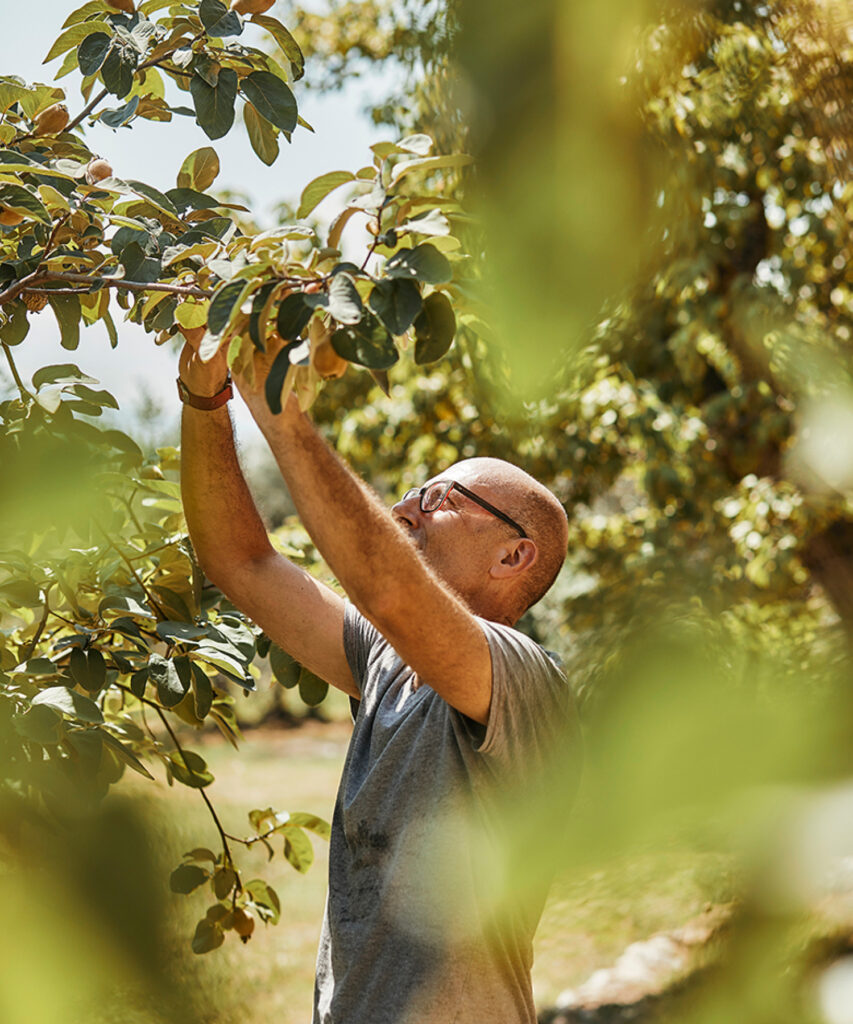
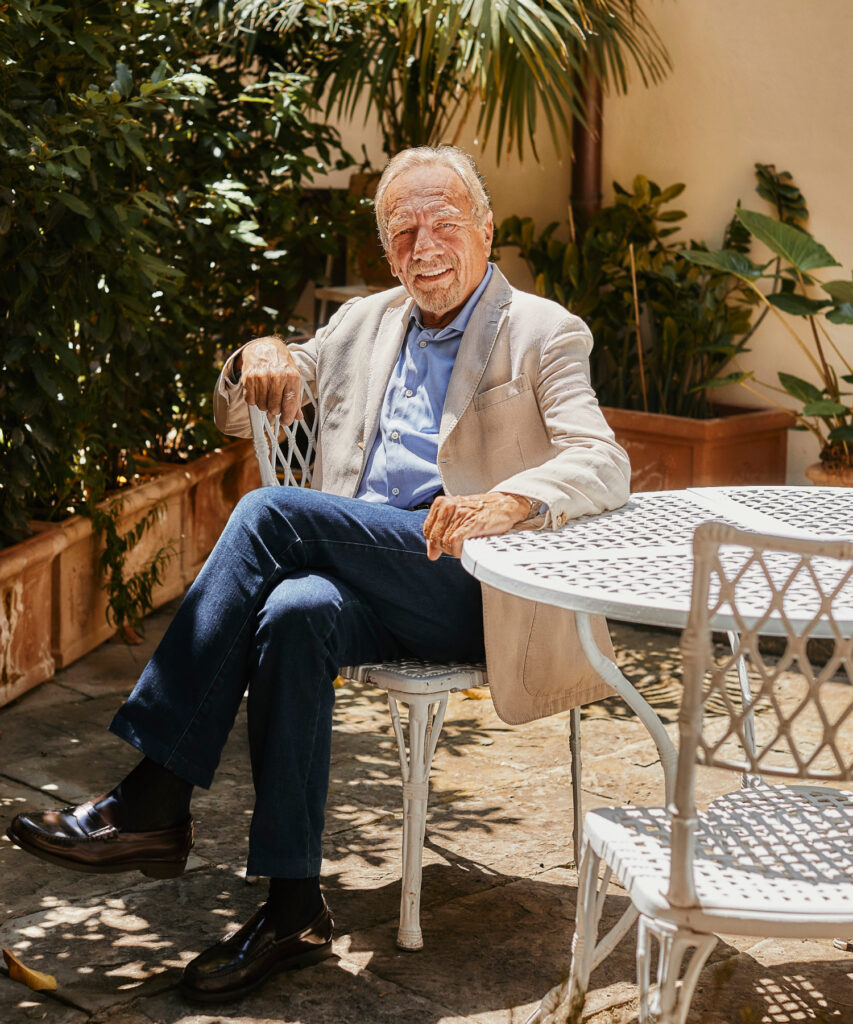
combine the past and the present.
Perfumer Giovani Paolo Feminis took the recipe years later with him north to his adopted place of residence where he calles it – to honour his chosen home – Eau de Cologne. The demand for the fragrances and ointments grew in Florence and in 1612 abbot Fra Angelico Marchissi decided to open the pharmacy for the public – and this meant: a new source of income for the monastery. So the Officina Profumo Farmaceutica di Santa Maria Novella was born and is in business ever since. Only a short while after its opening the Officina was declared the Medicis’ purveyor of the court.
Eugenio Alphandery was not bored anymore on his second visit. As a trained engineer he was asked to repair the old machines. That was 30 years ago. He saw the potential of the company that had only three employees back then. The business was going downhill fast after the Officina, just like all property of the church, was put under public administration after the union of Italy in the 19th century. The yard of the monastery was too small for systematic farming, the machinery outdated. That one could do a lot here was quite obvious to technician Alphandery who worked in the textile industry back then. He hesitated nevertheless; cosmetics and fragrances were in fact of little interest to him. Up until today he only uses the soap of his own business. Care for his grey beard, suncare for his weatherbeaten face? “So what”, he gestures and laughs his rough laugh, “I’m more of a sports person.” He has a passion for old motorbikes and sailing. At present he is planning on an Atlantic crossing. But a French friend must have coaxed him to join the company. He mentions her name only in passing – as if she was not an icon of European film: Catherine Deneuve.
One treats the many prominent clients with great discretion. They turn into PR partners only if they want to just like Nicole Kidman who declared Muschio Oro her favourite fragrance in a magazine. Deneuve told him that the products of the house were something very special, perfectly suited to people to whom luxuries are not compatible with pomp.
Products that tell a story
Alphandery was businessman enough to see the thrill in leading the company to the road of success. He moved the production to a modern lab and opened a museum and café in the rooms of the headquarters. Shopping at the Officina turned into a unique experience. He also bought land for growing the ingredients. He was also able to open and extend the Asian market in times of oversupply right because of the growing need for products with a story. The rest is history. The Officina owns 75 shops in Europe, the USA and Asia nowadays and exclusive online-stores such as Net-a-Porter and Franque offer its products, as well as the MÜHLE shops. Sales have tripled over the past ten years, we are talking 27 million Euros now. Alphandery is an old school boss. When he rings the doorbell, an employee makes sure to open quickly. Also the espresso arrives subito. The boss does not approve of waiting.
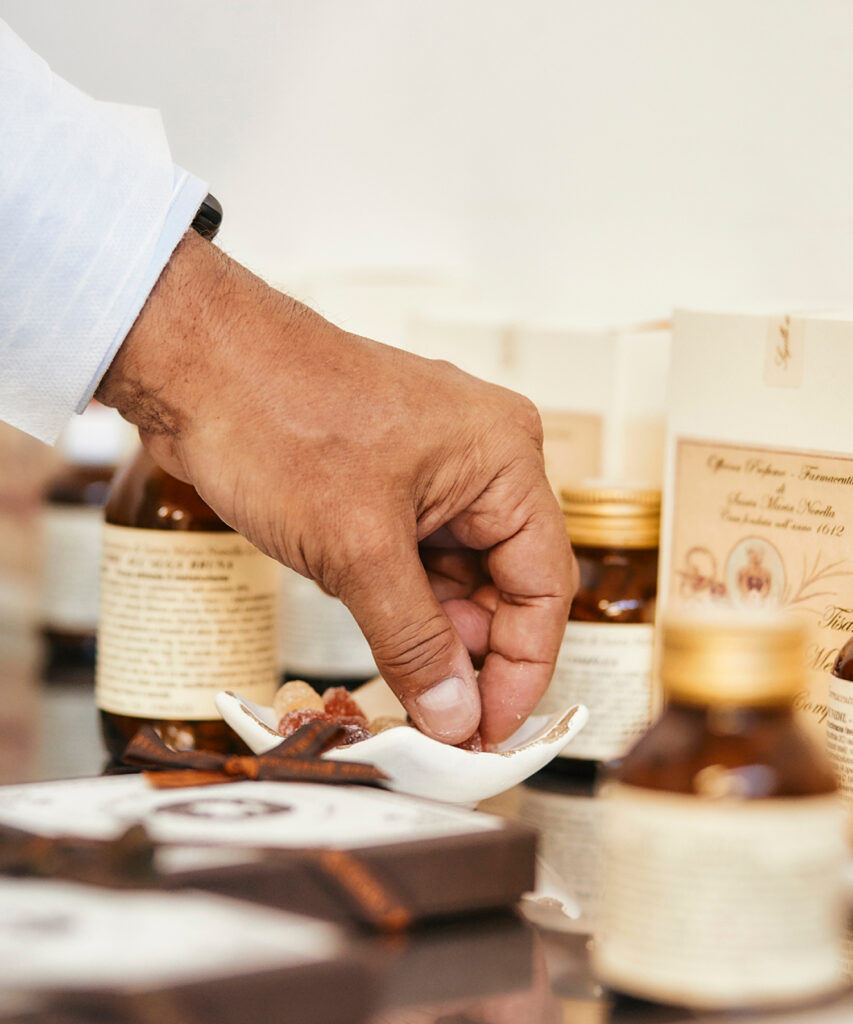
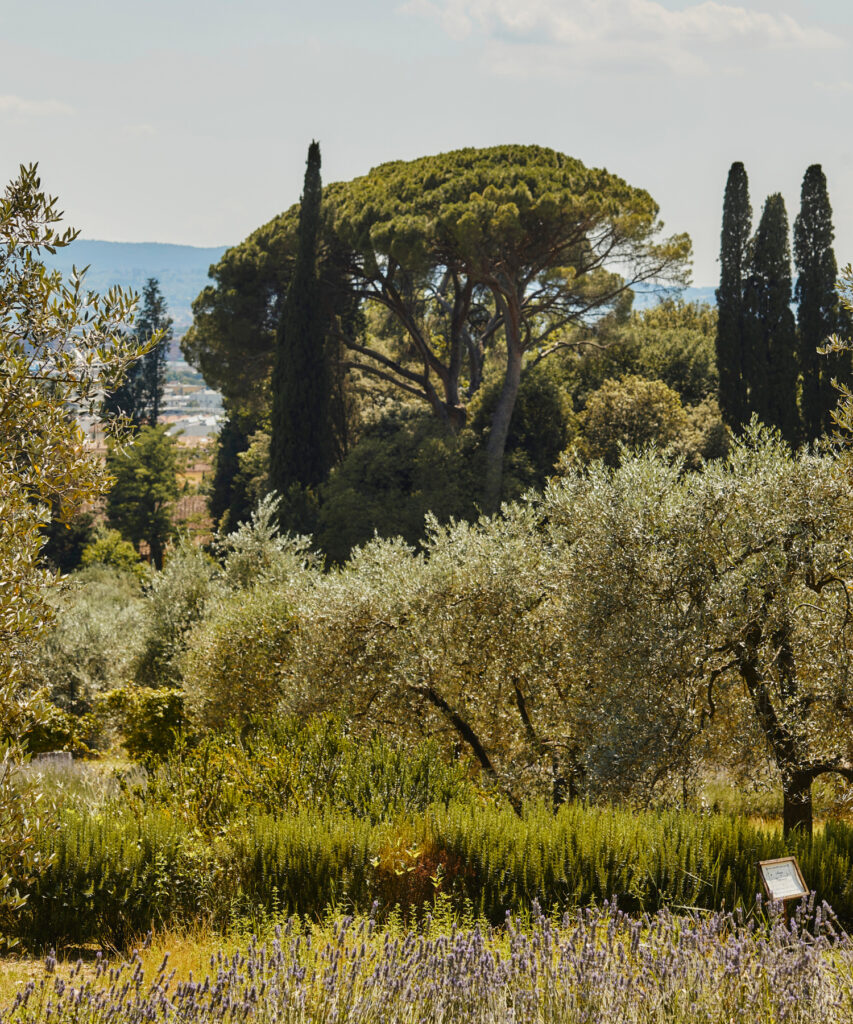
Medieval charms is not what characterises the production facilities a few kilometres away from the Via della Scala. Today’s alchemists wear lab coats and goggles while working in a modern functional building. An electronic nose monitors the composition of the products and detects even the slightest deviations. Even at a temperature of 45°C bacteria must not spread. Alphandery, the engineer, developed some of the machines himself. He copied a machine from the wine industry.
Soap shavings are mixed with milk in a kettle. After that, they are pressed into pieces, then they are stored in a special cabinet to dry for 30 days. Only then they are done and can be packed in waxed paper.
Yet a few more kilometres outside of Florence 2,500 plants grow on the foot of a Medici villa on an area covering 15,000 square meters.
The house’s own rose Rosa Novella emanates a sweet scent, flanked by lavender shrubs. Butterflies dance over patches ful of myrtle and cystius, rosemary, mint and irises. Foremost, the unassuming iris is one of the most important basic ingredients when it comes to the production of perfume – and the most precious one. Incredible 15 tons of the dried root are needed to produce one single litre of perfume.
Another herb with its knobbly small flowers grows just as unassumingly by the wayside of a gravel path: Costmary, or tanacetum balsamita, is a true officinal plant. It is used as an ingredient of Acqua Antihisterica, a nerve soothing tonic, and also of the famous S.M. Novella Mint pastilles.
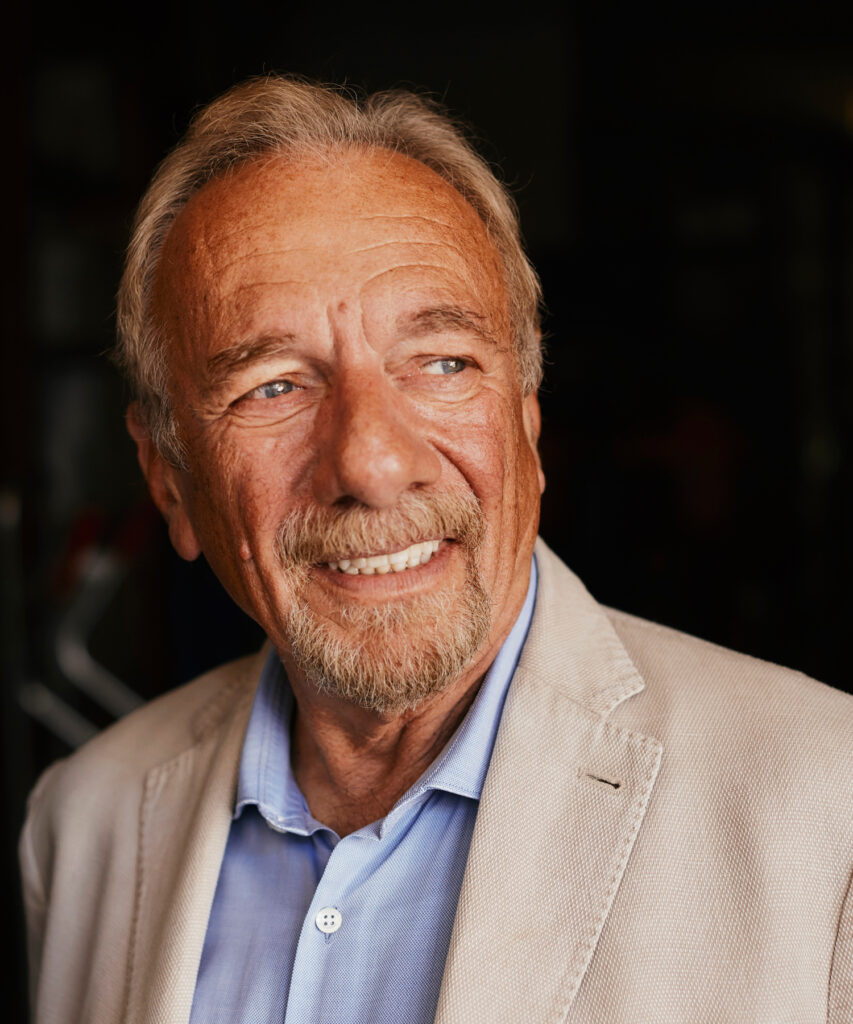
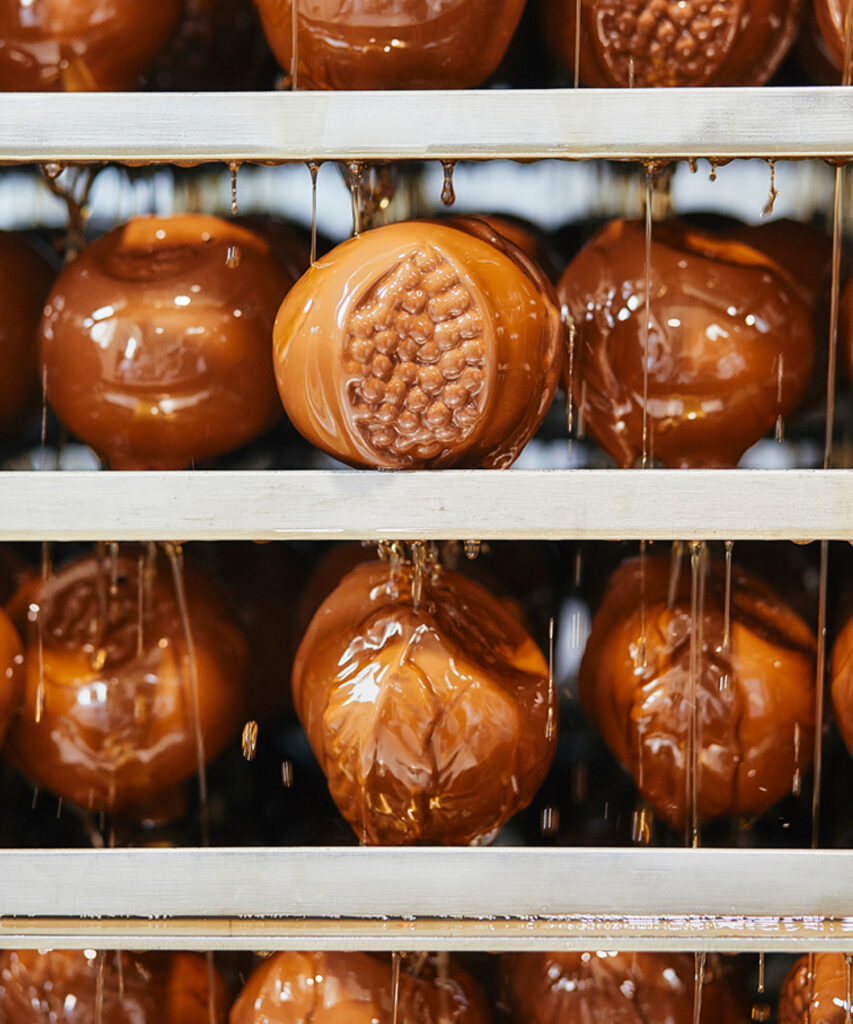
It is high noon now and the burning midday heat lies over the plots and the dome of the cathedral is visible through the leaves of the orange trees.
If the myth of the Medici city and the aura of the medieval monastery contribute to the success of the Officina?
“Maybe”, Alphandery concedes. Whereas the story is not as romantic as many might imagine:
“We discovered in the old books also recipes for facial cremes with secret ingredients such as snake poison and bull crap”, the boss of the Officina Profumo Farmaceutica di Santa Maria Novella tells amusedly.
This article has first been published in the fall 2018 print edition of 30 Grad.